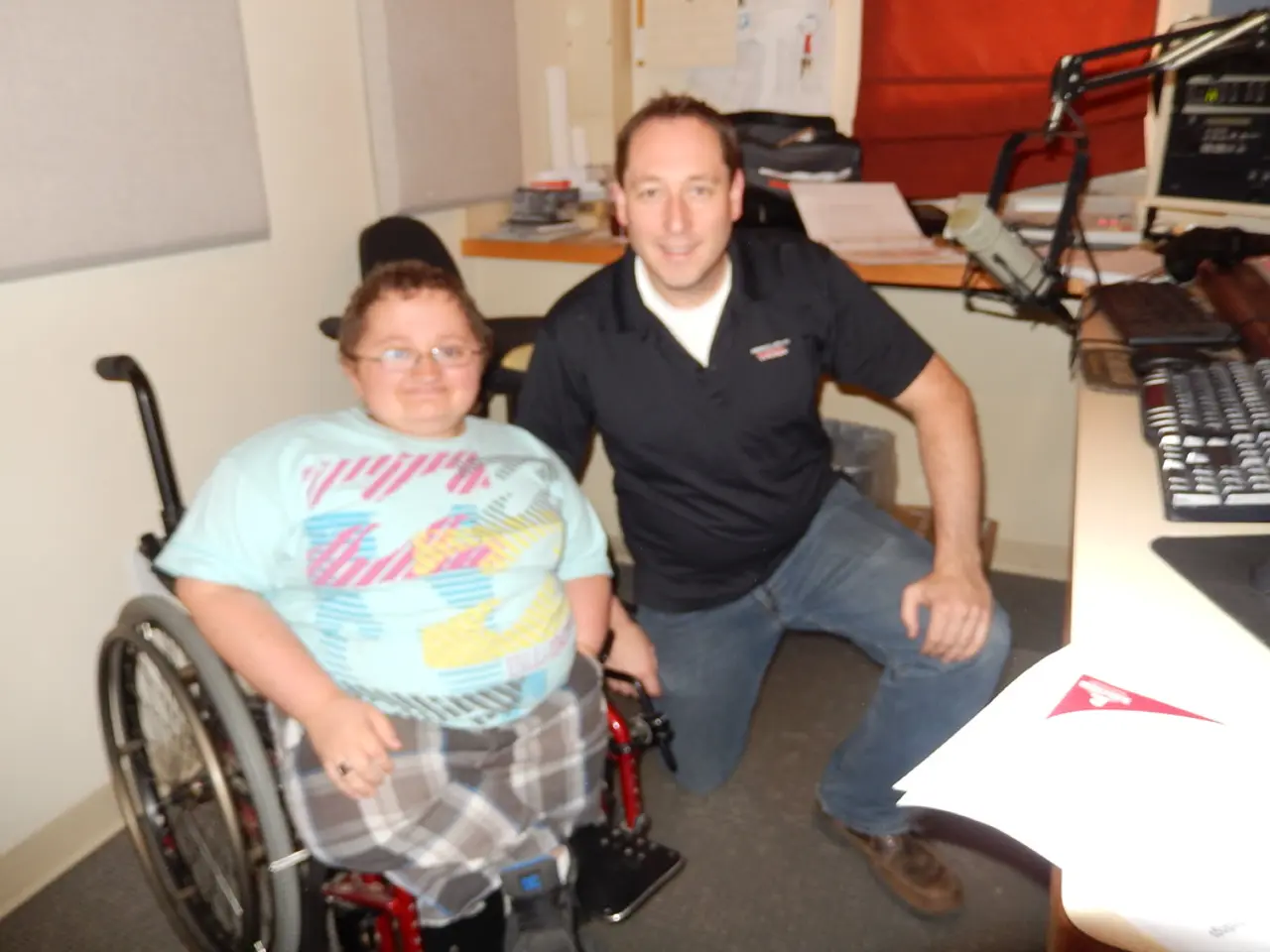Advanced Stage of Parkinson's Disease: Symptoms and Further Information
In the end stage of Parkinson's disease (PD), individuals often experience a range of motor, nonmotor, mental health, and cognitive symptoms. These symptoms can include severe mobility limitations, difficulty walking or standing independently, rigidity, tremors, bradykinesia (slowness of movement), postural instability, and frequent falls. Nonmotor symptoms may include sleep disturbances, constipation, urinary frequency and incontinence, swallowing difficulties, and various types of pain. Mental health symptoms can include psychosis, anxiety, depression, and cognitive decline, such as dementia and a decline in executive functions [1][3][5].
To provide compassionate care focused on quality of life during this challenging phase, several strategies are employed. Comprehensive symptom management involves addressing pain effectively through medications, physical therapy, and alternative therapies. Sleep disturbances are managed by optimizing sleep hygiene and medication regimens, and psychosis and mood symptoms are treated with appropriate neuropsychiatric interventions [1][3][5].
Support with activities of daily living is crucial, often requiring nursing or hospice care due to severe disability. This may involve total assistance with feeding, hygiene, mobility, and communication [1]. Emotional and psychological support is also vital, providing reassurance, maintaining dignity, and easing anxiety and distress in both patients and caregivers through empathetic communication and mental health support [1].
Advanced care planning is another essential aspect, discussing goals of care, end-of-life preferences, and offering palliative care or hospice services tailored to individual needs [1]. A multidisciplinary approach is taken, involving neurologists, physical therapists, pain specialists, mental health professionals, and social workers to create individualized care plans [1][2][3].
Open communication is key to understanding the evolving needs and preferences of the individual. Discussions about advance care planning, including resuscitation status and life-sustaining interventions, become increasingly important as Parkinson's disease progresses. Navigating the complexities of end-stage Parkinson's disease requires a realistic understanding that the need for assistance with daily activities becomes more apparent as the disease progresses [1].
Sleep disturbances, such as insomnia and frequent waking, are common in end-stage Parkinson's disease. Tailoring care plans to align with the individual's values and desires fosters a sense of agency and dignity. Providing physical care includes assisting with mobility, hygiene, and medication management. There is an increased risk of falls in end-stage Parkinson's disease, which could lead to serious health complications [1].
Emotional support is equally important, addressing the psychological toll the disease takes on both the person and the caregiver. Palliative care specialists can be central in optimizing comfort and quality of life, working collaboratively with neurologists [1].
End-stage Parkinson's disease has a life expectancy of 6-12 months. Cognitive decline is another symptom that may emerge in end-stage Parkinson's disease, including dementia, a decline in executive functions, and behavioral problems [1].
Navigating the complexities of end-stage Parkinson's disease requires a supportive network, including caregiver support groups, care partner resources, online communities, emotional support and counseling. Hospice care offers specialist care to manage symptoms and emotional support to the patient and their loved ones in the later stages of Parkinson's disease [4].
References:
[1] National Institute of Neurological Disorders and Stroke. (2021). Parkinson's Disease Information Page. Retrieved from https://www.ninds.nih.gov/Disorders/All-Disorders/Parkinsons-Disease-Information-Page
[2] Parkinson's UK. (2021). Advanced Parkinson's. Retrieved from https://www.parkinsons.org.uk/information-and-support/living-with-parkinsons/advanced-parkinsons
[3] The Michael J. Fox Foundation for Parkinson's Research. (2021). Late-Stage Parkinson's Disease: Understanding the Challenges and Advances in Care. Retrieved from https://www.michaeljfox.org/understanding-parkinsons/living-with-pd/late-stage-pd
[4] Parkinson's Foundation. (2021). Hospice Care. Retrieved from https://www.parkinson.org/Understanding-Parkinsons/Treatment/Hospice-Care-and-Palliative-Care
[5] American Academy of Neurology. (2021). Parkinson's Disease. Retrieved from https://www.aan.com/patients/disease-information/parkinson-disease




